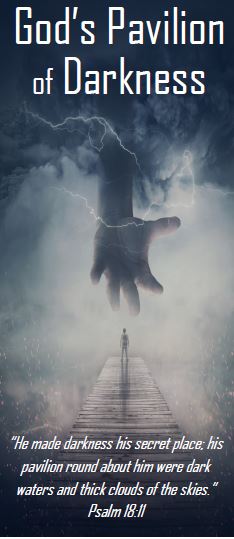The Voice in the Wilderness
The Comfort of Elijah - The Voice in the Wilderness
The ministry of John the Baptist burst upon the consciences of the Jewish nation with a confronting message of repentance and preparation for the Messiah. Gabriel told Zachariah that his son would be filled with the spirit of Elijah; he would turn the hearts of the fathers to the children; he would prepare the way of the Lord. Luke 1:17
His message stirred the nation so much that the leaders of Israel sent a delegation party to find out his identity, purpose and mission. The very questions that they asked him betrayed what they feared. “Are you Elijah?”; “Are you that prophet?” John made it clear that he was not actually Elijah or the promised Messiah but he gave them a passage of Scripture that connected with what Gabriel had told his father.
John 1:23 He said, I am the voice of one crying in the wilderness, Make straight the way of the Lord, as said the prophet Esaias.
This is a reference to Isaiah 40:3. This reference takes us right to the heart of the work of John the Baptist. They wished to know who John was and what was he about and he gave them the most direct answer by pointing them to this passage. A careful examination of Isa 40 provides for us the key ingredients of the man who came in the power and spirit of Elijah.
The chapter begins with the command to comfort the people of God.
Isa 40:1 Comfort ye, comfort ye my people, saith your God.
The words Elijah and comfort are not ones that we would normally associate together. Also when we consider the message and lifestyle of John the Baptist, his clothing and diet is simple and disciplined. He is removed from the comforts of life and preaches in a confronting manner.
The Voice
How can this message be considered comforting? Let us consider again the passage of Isa 40:3
Isa 40:3 The voice of him that crieth in the wilderness, Prepare ye the way of the LORD, make straight in the desert a highway for our God.
Remember that John came in the spirit and power of Elijah. That Spirit is the Spirit of Christ that flows from the heart of the Father.
1 Pet 1:10,11 Of which salvation the prophets have enquired and searched diligently, who prophesied of the grace that should come unto you: Searching what, or what manner of time the Spirit of Christ which was in them did signify, when it testified beforehand the sufferings of Christ, and the glory that should follow.
Exod 23:22 But if thou shalt indeed obey his voice, and do all that I speak; then I will be an enemy unto thine enemies, and an adversary unto thine adversaries.
John 5:30 I can of mine own self do nothing: as I hear, I judge: and my judgment is just; because I seek not mine own will, but the will of the Father which hath sent me.
Christ is the Word of God, He speaks on behalf of His Father and communicates the will and desire of His Father. The voice crying in the wilderness is the voice of the spirit of Christ in John the Baptist and the Spirit of Christ carries the Word of His Father.
That voice is the voice that has followed the human race from the moment Adam and Eve ate the fruit.
Gen 3:8,9 And they heard the voice of the LORD God walking in the garden in the cool of the day: and Adam and his wife hid themselves from the presence of the LORD God amongst the trees of the garden. And the LORD God called unto Adam, and said unto him, Where art thou?
It is the voice of the Father crying out to his children who have distanced themselves from Him. The voice is intense because of concern for the welfare of His children. The voice is direct because it wishes to avert complete disaster and the loss of His children. Yet it is a voice of comfort to those willing to hear, because in that voice we recognize the love of the Father for His children and desire to have them come back to Him. It is the desire to turn the disobedient to the wisdom of the Just.
The voice is most powerfully conveyed in the Ten Commandments when God spoke through His Son with a powerful voice His law designed to protect and bless His children
Exod 20:1,18-19 And God spake all these words, saying,…. And all the people saw the thunderings, and the lightnings, and the noise of the trumpet, and the mountain smoking: and when the people saw it, they removed, and stood afar off. And they said unto Moses, Speak thou with us, and we will hear: but let not God speak with us, lest we die.
Deut 4:12 And the LORD spake unto you out of the midst of the fire: ye heard the voice of the words, but saw no similitude; only ye heard a voice.
This is at the heart of the voice, the commandments of God, it is an earnest voice sent through Christ into the Prophets to call the people back to our Heavenly Father. This is the voice that Elijah speaks with. The Spirit of Elijah is Christ working in the hearts of His servants on behalf of the Father.
The Wilderness
We notice that the voice is crying in the wilderness. What is significant about the wilderness? The word wilderness can mean open pasture, an uninhabited land but can also imply a desert. One of the first places we see this word used is concerning Hagar and Ismael
Gen 21:14 And Abraham rose up early in the morning, and took bread, and a bottle of water, and gave it unto Hagar, putting it on her shoulder, and the child, and sent her away: and she departed, and wandered in the wilderness of Beersheba.
Gen 21:20 And God was with the lad; and he grew, and dwelt in the wilderness, and became an archer.
We see the experience of Hagar and Ismael being forced to leave the protective care of Abraham. They go into the wilderness, an open uncovered place, a desolate place, a dry place. A child that grows up without the protective caring love of his father is emotionally placed in an unprotected place that causes the soul to be desolate. The child is no longer directly living by the streams of living water that flows from the mouth of his father that flows from the heart of Christ which flows from the heart of the Father. A child that remains unprotected becomes the perfect candidate for the abomination of desolation. Their hearts become so desolate from the lack of blessing that they seek to dominate and control all around them. But before this occurs, God comes into the wilderness crying for His children to save them from the abomination of desolation.
Notice how Joseph was disconnected from his father in the wilderness
Gen 37:22 And Reuben said unto them, Shed no blood, but cast him into this pit that is in the wilderness, and lay no hand upon him; that he might rid him out of their hands, to deliver him to his father again.
His brothers put him in a pit (valley) in the wilderness. Reuben intended to deliver him back to His father, but it became the door to be removed from him.
The wilderness can also be a good place to disassociate from bad associations and connect with God. Moses was 40 years in the wilderness being prepared for his work. The time there allowed him to unlearn what he was taught under his Egyptian masters. So when you find the rock in the desert that has water, then the wilderness can be an excellent training ground.
The wilderness is also a place of judgment for nearly all the Israelites perished in wilderness for their rebellion. It is also full of serpents, scorpions, drought and no water.
Num 14:29 Your carcases shall fall in this wilderness; and all that were numbered of you, according to your whole number, from twenty years old and upward, which have murmured against me,
Deut 8:15 Who led thee through that great and terrible wilderness, wherein were fiery serpents, and scorpions, and drought, where there was no water; who brought thee forth water out of the rock of flint;
The wilderness is a place of fiery serpents and scorpions that can bite, kill and destroy the soul. The lack of the Father’s blessing in a family environment, leaves the soul exposed to temptation and disaster.
The wonderful news is that the Spirit of Elijah comes into the desert with a message of comfort for His people and it is to this message in Isaiah 40 that we turn next.





